Post-bop/jazz fusión: «I Will Tell Him On You» y «Epilogue» [ESP/ENG]
I Will Tell Him On You
Joe Henderson (saxo tenor), John McLaughlin (guitarra eléctrica), Herbie Hancock (piano eléctrico), Miroslav Vitouš (contrabajo) y Jack DeJohnette (batería). Extraído del álbum Infinite Search (1970) de Miroslav Vitouš.
En I Sing the Body Electric (1972), el segundo álbum del grupo Weather Report, la cara 1 fue grabada en estudio, pero la segunda recoge tres temas de una actuación en Tokio (Japón). El batería Alphonse Mouzon y el percusionista Airto Moreira fueron sustituidos por Eric Gravatt y Dom Um Romao respectivamente, contribuyeron otros músicos invitados y Zawinul utilizó nuevos efectos electrónicos. En 1972 salió a la venta el doble álbum Live in Tokyo, en el que se puede escuchar el resto del concierto que aparece en el álbum anterior con una amplia demostración de estilos, desde una interpretación de piano de Zawinul en solitario hasta improvisaciones libres llenas de explosiones electrónicas, disonancias e innumerables cambios de ritmo. Shorter nunca volvería a tocar con la misma intensidad con que lo hizo en aquella ocasión. En Swightnighter (1973) Zawinul comenzó a ejercer un mayor control sobre la formación, apartándola de la improvisación colectiva y presentando composiciones estructuradas en las que acentuaba el groove y el funk buscando el éxito y la fama. Debido a ello, Vitouš solo apareció en un tema de Mysterious Traveler (1974), se marchó del grupo y grabó con diferentes intérpretes para los sellos Warner Bros. y Arista. En 1979 firmó con ECM Records y elaboró con el guitarrista Terje Rypdal y el batería Jack DeJohnette Rypdal, Vitouš, DeJohnette (1979) con un paisaje sonoro de otro mundo de indescriptible belleza.
In I Sing the Body Electric (1972), the second album by the group Weather Report, side one was recorded in studio, but side two includes three themes from a performance in Tokyo (Japan). Drummer Alphonse Mouzon and percusionist Airto Moreira were replaced by Eric Gravatt and Dom Um Romao respectively, other guest musicians contributed and Zawinul used new electronic effects. In 1972 the double album Live in Tokyo went on sale, in which it can be listened the rest of the concert that appears in the previous album with a wide demonstration of styles, from a solo Zawinul piano rendition to free improvisations filled with electronic explosions, dissonances and countless rhythm changes. Shorter would never play with the same intensity again as he did on that occasion. In Sweetnighter (1973) Zawinul began to impose more control over the ensemble, moving away from collective improvisations and presenting structured compositions in which he emphasized groove and funk seeking success and fame. As a result, Vitouš only appeared on one Mysterious Traveler (1974) track, left the group and recorded with different interpreters for Warner Bros. and Arista labels. In 1979 he signed with ECM Records and elaborated with guitarist Terje Rypdal and drummer Jack DeJohnette Rypdal, Vitouš, DeJohnette (1979) with a sonorous landscape from another world of indescribable beauty.
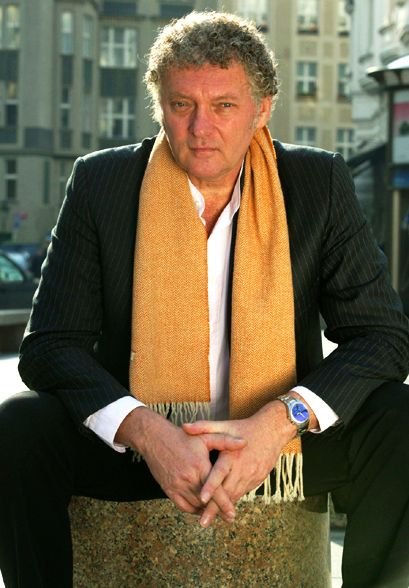
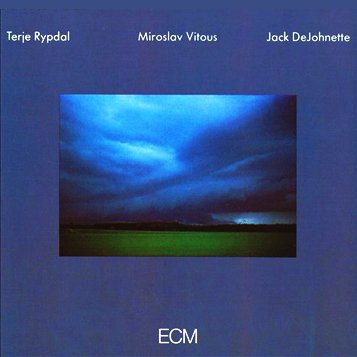
Luego Vitouš formó el Miroslav Vitouš Group con el saxofonista John Surman, el teclista Kenny Kirkland y el batería Jon Christensen, y lanzaron First Meeting (1980), en el que todos los temas son suyos excepto el que da título al álbum, que es una improvisación libre. En 1981 se reunió de nuevo con el pianista Chick Corea y el batería Roy Haynes trece años después de tocar juntos en Now He Sings, Now He Sobs para publicar el álbum doble Trio Music, compuesto por improvisaciones colectivas en dúo y trío, y versiones de temas del extraordinario pianista y compositor Thelonious Monk. En 1981 participó en el Woodstock Jazz Festival organizado para celebrar el décimo aniversario del Creative Music Studio, un centro de gran nivel para el estudio de la música creativa contemporánea situado en esa ciudad del estado de Nueva York. En 1982 publicó con su Miroslav Vitouš Group Journey’s End y en 1983 fue nombrado director del departamento de jazz del New England Conservatory en Boston, pero abandonó el puesto en 1988 decepcionado con el sistema educativo norteamericano. En 1984 el trío con Chick Corea y Roy Haynes se convirtió en cuarteto con la llegada del saxofonista Toshiyuki Honda y lanzaron Dream.
Later Vitouš formed the Miroslav Vitouš Group with saxophonist John Surman, keyboardist Kenny Kirkland and drummer Jon Christensen, and they issued First Meeting (1980), in which all the themes are his except the one that gives title to the album, which is a free improvisation. In 1981 he met again with pianist Chick Corea and drummer Roy Haynes thirteen years after playing together on Now He Sings, Now He Sobs to publish the double album Trio Music, composed by collective improvisations in duet and trio, and versions of tunes by the extraordinary pianist and composer Thelonious Monk. In 1981 he participated in the Woodstock Jazz Festival organized to celebrate the tenth anniversary of the Creative Music Studio, a high-level center for the study of contemporary creative music located in that city of the New York state. In 1982 he released Journey’s End with his Miroslav Vitouš Group and in 1983 was appointed director of the jazz department at the New England Conservatory in Boston, but left the position in 1988 disappointed with the American educational system. In 1984 the trio with Chick Corea and Roy Haynes became a quartet with the arrival of saxophonist Toshiyuki Honda and launched Dream.
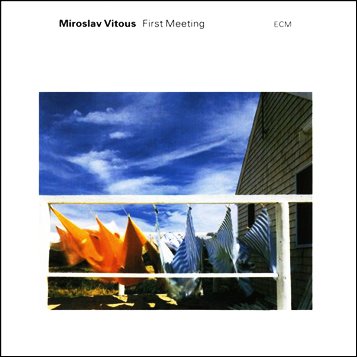
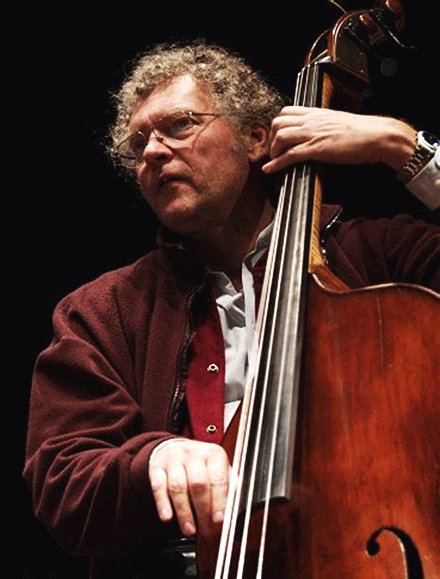
En 1985 Vitouš grabó Emergence tocando el contrabajo en solitario sin overdubbing de manera sobria y atrevida manteniendo el interés del oyente con su pasión y su impresionante técnica, interpretando a partes iguales en pizzicato y con arco. Después abandonó el sello ECM, pero siguió colaborando con otros músicos, como el guitarrista Larry Coryell en Dedicated To Bill Evans And Scott La Faro (1987), el pianista Steve Kuhn en Oceans in the Sky (1989) y el saxofonista Jan Garbarek en Star (1991) y Atmos (1992). Durante el resto de los años noventa estuvo tocando en festivales y enseñando música hasta que en el 2003 volvió a ECM Records y grabó como líder Universal Syncopations con Jan Garbarek a los saxos tenor y soprano, John McLaughlin a la guitarra eléctrica, Chick Corea al piano y Jack DeJohnette a la batería. En el 2005 intervino en Takes on Pasolini del pianista Antonio Faraó y en el 2007 publicó Universal Syncopations II con otros intérpretes. En el 2009 lanzó Remembering Weather Report con nuevas interpretaciones de temas que había escrito para el grupo, en el 2014 Miroslav Vitouš Group con su antiguo Miroslav Vitouš Group y en 2016 Music of Weather Report con más versiones experimentales de sus composiciones junto con piezas de blues atmosféricas. También en el 2016 reunió a los legendarios músicos que lo acompañaron en Infinite Search para grabar The Bass, y salió a la venta Ziljabu Nights, que registra un concierto interpretado en el Theater Gütersloh de esa ciudad de Alemania. Sus últimos trabajos han sido Ad-Lib Orbits (1917) y Moravian Romance (2018).
In 1985 Vitouš recorded Emergence playing double bass solo without overdubbing in a sober and daring way keeping the listener’s interest with his passion and his impressive technique, playing equally in pizzicato and with bow. Then he abandoned the ECM label, but continued to collaborate with other musicians, including guitarist Larry Coryell on Dedicated To Bill Evans and Scott La Faro (1987), pianist Steve Kuhn on Oceans in the Sky (1989) and saxophonist Jan Garbarek on Star (1991) and Atmos (1992). During the rest of the 1990s he played in festivals and taught music until 2003, when he returned to ECM Records and recorded Universal Syncopations as a leader with Jan Garbarek on tenor and soprano saxophones, John McLaughlin on electric guitar, Chick Corea on piano and Jack DeJohnette on drums. In 2005 he took part in Takes on Pasolini by pianist Antonio Faraó and in 2007 he published Universal Syncopations II with other performers. In 2009 he issued Remembering Weather Report with new interpretations of themes he had written for the group, in 2014 Miroslav Vitouš Group with his old Miroslav Vitouš Group and in 2016 Music of Weather Report with more experimental covers of his compositions along with atmospheric blues pieces. Also in 2016 he gathered the legendary musicians who accompanied him on Infinite Search to record The Bass, and Ziljabu Nights went on sale, which registers a concert given at the Theater Gütersloh in that Germany city. His latest works are Ad-Lib Orbits (1917) and Moravian Romance (2018).
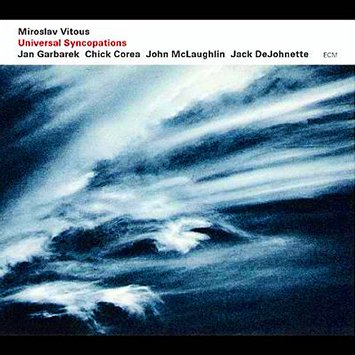
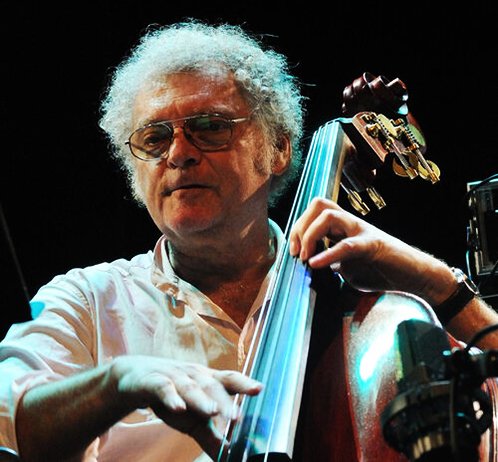
Translated with the help of DeepL

Epilogue
John McLaughlin (guitarra eléctrica), Herbie Hancock (piano eléctrico), Miroslav Vitouš (contrabajo) y Joe Chambers (batería). Extraído del álbum Infinite Search (1970) de Miroslav Vitouš.
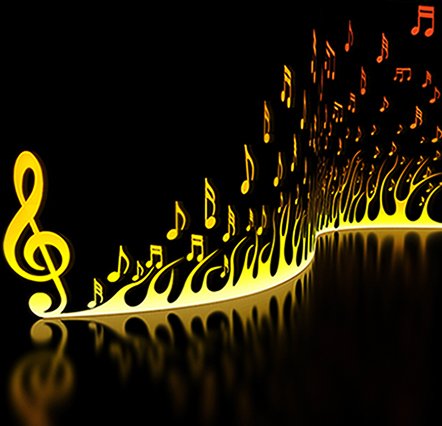
0
0
0.000
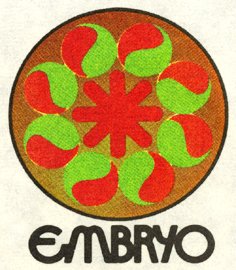

¡Enhorabuena!
✅ Has hecho un buen trabajo, por lo cual tu publicación ha sido valorada y ha recibido el apoyo de parte de CHESS BROTHERS ♔ 💪
♟ Te invitamos a usar nuestra etiqueta #chessbrothers y a que aprendas más sobre nosotros.
♟♟ También puedes contactarnos en nuestro servidor de Discord y promocionar allí tus publicaciones.
♟♟♟ Considera unirte a nuestro trail de curación para que trabajemos en equipo y recibas recompensas automáticamente.
♞♟ Echa un vistazo a nuestra cuenta @chessbrotherspro para que te informes sobre el proceso de curación llevado a diario por nuestro equipo.
🏅 Si quieres obtener ganancias con tu delegacion de HP y apoyar a nuestro proyecto, te invitamos a unirte al plan Master Investor. Aquí puedes aprender cómo hacerlo.
Cordialmente
El equipo de CHESS BROTHERS
¡Felicitaciones!
1. Invierte en el PROYECTO ENTROPÍA y recibe ganancias semanalmente. Entra aquí para más información.
3. Suscríbete a nuestra COMUNIDAD, apoya al trail de @Entropia y así podrás ganar recompensas de curación de forma automática. Entra aquí para más información sobre nuestro trail.
4. Creación de cuentas nuevas de Hive aquí.
5. Visita nuestro canal de Youtube.
Atentamente
El equipo de curación del PROYECTO ENTROPÍA
Keep up the good work. 👏
You deserve the best. 💪
Curated by the Mystic Gudasol